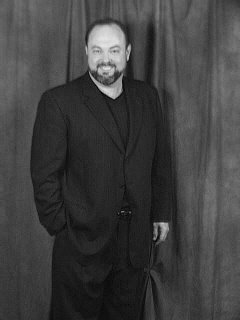This past weekend I attended at Divine Liturgy at a parish where 95% of the service was in English. It was a welcomed change.
But, as I've said before, if you mistake my recent struggles with an ethno-centric Orthodoxy as based on language only, you'd be mistaken.
My greatest struggles are internal. How does one deal spiritually and emotionally with feelings of alienation and disconnection? What is it like to live as a "foreigner" or "stranger" in the midst of a place that was supposed to be "home."
Believe it or not, I have no illusions of asking those around me to change the way they have always done things to make me feel more comfortable. Hey, I'm arrogant, but not THAT arrogant.
No, in fact I am coming to see this sense of being a "stranger" or "foreigner" as a spiritual gift. It is another way for my own spiritual journey to enter more deeply into the sufferings of Christ. After all "He came unto His own and His own did not receive Him." He was a "stranger" and "foreigner" in His own world.
So, how does this sense of being a "stranger" help me in my own struggle to enter into being Christ-like?
First, being the "stranger" calls me to humility and repentance. As much as I insist that my struggle is for authentic evangelism to the general population around us, I must confess that some (perhaps most) of my dis-ease stems from my own desire for comfort and the familiar. This self-centered attitude MUST die within me if I am ever to know "sober joy." As a stranger, I am invited to confront my own spiritual poverty and repent.
Second, being a "stranger" calls me to identify with other "strangers." Now in my own sense of being a Stranger I can relate to others who feel alienated and cut off. Now my desire for evangelism can be purified from the shame inducing tirades of accusation against others to an authentic compassion for others that transforms me. As a stranger, I can now reach out to other strangers and invite them to know true "philanthropia."
Finally, being a "stranger" calls me to Christ Himself. Jesus knows what it is like to be rejected by His own. He knows what it is like to look out over the city of Jerusalem and lamenting that He would have gathered them unto Himself, but they "would not." As a stranger, I am now invited to join another Stranger and learn to do the hard work of communion.
Being a stranger in a place I thought was home is hard. The fact is that Orthodoxy is my home, but I am now entering deeper into the grief of my own conversion and naming this as grief. But that's what we humans were created to do. God brought all the animals to Adam to see what Adam would name them, and we too, are called to name the poverty, pain, woundedness, of our own souls so that, in naming them, we can overcome them with the love of Jesus Christ.
I am embracing (with tears) my own sense of being a stranger in a place I thought was home, and in doing so, I am learning about my own weaknesses and wounds, and, by God's grace, I am confronting my further need for repentance and healing.
It is "good" to be a stranger. It's just not pleasant.


